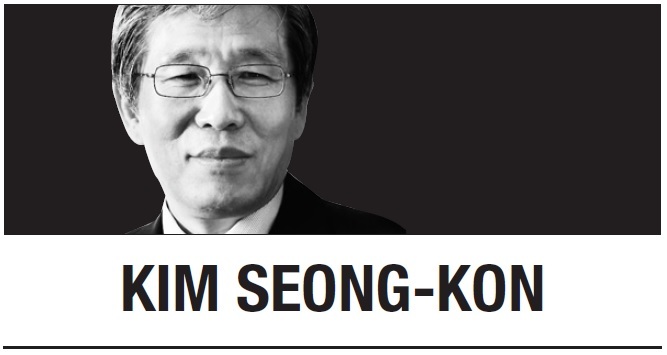
“Munyeodo,” which can be translated as “Portrait of a Shaman” or “The Shaman Painting,” is a short story by Kim Tong-ni that depicts the clash between traditional Korean shamanism and Western Christianity in premodern Korea. In the story, Kim superbly portrays the waning of traditional Korean culture in the face of the overwhelming influence of Western culture in early 20th century Korea. Kim’s story ends tragically, as the shaman mother kills her Christian son accidentally during their struggle over the Bible she is trying to burn. Right after this heart-rending incident, she walks into the river while performing a shamanic ritual.
Today we are living in a completely different era, where globalism and multiculturalism constitute the dominant worldview. Hybridity and the fusion of different cultures are ubiquitous. The world has now become a global village where boundaries are collapsing and we share the same ideas and products. Moreover, thanks to our smartphones, we communicate with the world freely and spontaneously in English, which has become a global language.
Embarrassingly, however, many people in today’s South Korea still cling to a strain of ultranationalism that was valid only in the late 19th or early 20th century as a then-necessary protection against foreign imperialism. The problem with extreme nationalism is that it can very easily degenerate into fascism, xenophobia and tyranny. Nationalism implies that the idea of a nation takes precedence over its people, so it allows the government to limit and manipulate people’s freedom. Nationalism also makes people narrow-minded, biased and parochial, as it perceives other nations as potential enemies.
Nevertheless, quite a few Koreans seem to take pride in being nationalists. For example, I know someone who is a devout ultranationalist. He denounces everything foreign and takes pride in anything that is Korean. He laments that the Western mind has seriously contaminated the Korean mind, and yet we do not try to eradicate the remnants of Western imperialism that pervade every aspect of our lives.
The irony is that he preaches anti-Western ultranationalism while wearing Western suits, shoes and hairstyles. He enjoys Western cuisine as well. Moreover, he has studied in the US and received a Ph.D. degree from an American university, which has enabled him to become a professor at a prestigious university in Korea. The irony reaches its height in the fact that he is a devoted Catholic and has a biblical name that he took upon his baptism. That means his education and religion are Western, and thus he is the one who is “seriously contaminated” by Western culture. The word “catholic,” which has its roots in Latin and Greek, means “universal.” Besides, if he calls himself by the name of a Catholic saint, he is already a universal man. Nevertheless, he does not seem to notice the contradictions.
In Korea, you can find many anti-foreign ultranationalists like him who are Christians or Marxists. The paradox is that both Christianity and Marxism are from the West. So are socialism and communism. Even Korean culture is not free from the influence of Chinese and Japanese culture. That is why there is no place for ultranationalism anymore -- because no country can survive alone these days.
I also have an acquaintance who preaches that Koreans do not need to learn English. He argues that studying English is a sheer waste of time and energy for the Korean people because English is the language of imperialist countries. Of course, one can say that not all Koreans need to speak English, which is true. Nevertheless, it is misleading to assert that no Koreans need to study English.
The amusing thing is that he, too, studied in the US and earned his Ph.D. from an American university. Moreover, he sent his children to America to study. How, then, could he assert that Koreans do not need to learn English? Can he not see the contradictions, or is he simply ignoring them for convenience’ sake? It eludes me. He is a typical “limousine leftist” from Gangnam, or a “latte leftist” who relishes all the privileges of an upper-class person, while discouraging others from enjoying them.
Many Koreans tend to confuse ultranationalism with patriotism. As a result, if you join an anti-Japan or anti-America campaign, you are a patriot. If not, you are a traitor. They also confuse loyalty to the incumbent president with loyalty to the country. Thus, if you are loyal to the president, you are a patriot. If not, you are an unpatriotic outcast. It is no wonder that our president always has so many ardent, dedicated supporters. If you criticize the president, his fanatical supporters will immediately ruin you by launching ruthless cyberattacks. However, as the 26th US president, Theodore Roosevelt, said, “Patriotism means to stand by the country. It does not mean to stand by the president.”
We no longer live in an era of clashes between domestic ghosts and foreign evils. We should overcome ultranationalism and embrace globalism instead.
Kim Seong-kon
Kim Seong-kon is a professor emeritus of English at Seoul National University and a visiting scholar at Dartmouth College. -- Ed.








